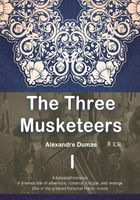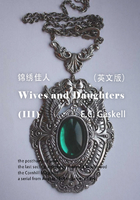What really matters is who you are on the inside, not the outside. If someone tells you this, you know it means one of two things. They don't think you're that good-looking, either. Or they're worried you might be falling for the fiction of fashion magazine cover girls and starting to believe that all that matters in life is the skinniness of your legs or the poutiness of your lips. My legs are pretty skinny, in fact. What I can see of them. Which isn't much, given that I can move little below the neck, and that I'm looking at myself not in a mirror but a window.
It's a plate glass window that reaches from the vinyl flooring to the ceiling, and it was the first significant thing that I noticed about this room-so different from my bedroom in my dark, terraced London home. The second thing: no British channels on the TV, apart from BBC America. Third: no mirrors. New health and safety guidelines, according to Jane, the sturdy, sweet-faced nurse who showed me around.
"Bollocks," I whispered, not that quietly, but quietly enough that she couldn't be absolutely certain of what I said. I knew exactly why they didn't want me to look at myself. What I didn't understand was why she didn't just tell me. It's not as though I'm unused to significantly harder truths.
"I'll be your mirror," Dad said. And I knew he would, in a way. Unlike Mum, he's never been much good at hiding his emotions. Every tiny deterioration in my physical condition has been reflected step-by-inevitable-step in his sad, brown eyes. As a metaphorical mirror, he's exceptional. As an actual mirror, not so much.
"I need to know," I told Dr. Leon Monzales, "that everything you tell me will be the truth-or what you honestly believe is the truth."
The first time the chief surgeon came to visit me here in my room was the afternoon I arrived in Boston. Monzales has a daytime-soap doctor's voice. Husky, with a Mexican accent. He has a daytime-soap doctor's face and body, too. I've seen enough daytime TV these past few years to be pretty damn sure of my judgment on this. Broad shouldered, square jawed, with wavy dark hair, brushed back.
I was in my voice-activated chair over by the chest of drawers, on which Mum had laid out a few things she seemed to think would make the place feel more like home-or at least a little less like a modified-five-star-hotel-room prelude to a slasher movie. A stuffed squirrel with a faded Minnie Mouse sticker on its tail-my first soft toy. A silver-plated candle in my favorite citrus-woody scent. And a photograph that used to be on the bookcase by my bed: a picture I took of Mum and Dad and my brother, Elliot, standing in spring sunshine by the Gothic ruins of Whitby Abbey.
Dr. Monzales was on an oatmeal-colored, regular-person's upholstered chair. His shirtsleeves were neatly rolled up, his muscular hands resting in his lap. Judging by his posture, we could have been discussing summer vacation plans or whether nuts make or break a chocolate brownie rather than the imminent end of my life as I know it.
"Why are there no mirrors in my room?"
"Oh," he said. "Yes, I can see how that might seem a little bit strange."
"It doesn't seem strange. You don't want me to look at myself."
"I-we-I don't have a policy on that. Our psychological team felt that perhaps it might help with the adjustment."
"The nurse-Jane-told me it's because of new health and safety guidelines."
Monzales successfully combined an expression of surprise with one that suggested of course she did. "There's more than physical health and safety to think about, Rosa."
"My mind is okay."
"I know that," he said.
"You can leave my mind to me."
He raised his hands in surrender. "Rosa. Do you want mirrors in your room?"
I was on the point of saying yes-mostly, I realized, because I was irritated by the nurse. But did I really? At home, I avoid mirrors. Sometimes when I close my eyes, I can still half remember myself as I used to be.
"The psychological healing process, as well as the physical, you know-perhaps it will be easier this way," Monzales said.
"Will I really be healed?" I asked him.
He hunched forward, palms spread, like a saint in a painting offering a blessing. "Of course, that is what we've all planned for so assiduously."
But is it possible? A broken bone can be healed. A gash can be healed. But me? Is the surgery he is planning something that could legitimately be described as an attempt to heal? Not exactly. Try to be precise, Rosa. (When I talk to myself, I often hear Mum's voice in there, too.)
Anyway, this is a deviation, but a little explanation, at least, for why, three full weeks after that conversation about mirrors and healing, I'm sitting as close as I can to the vast window that separates my brightly lit hospital room from the darkened sky.
Three weeks.
It's March 15. 5:48 P.M.
At 4:30 A.M. on March 16, I will be wheeled away for the presurgery meds, then obliterating anesthesia.
I have less than eleven hours left.
Focus.
I peer at the window, and I see…
My legs. Beneath the black cotton trousers, they're emaciated. My shapeless waist.
My acceptable bust. Though a lot of good that does me.
My face? It's hard. And I don't mean because I'm looking in a window.
I'll have to take this in steps.
Below my room, running the length of this wing and separating it from Boston Harbor, is a narrow park. A couple of kids are out there, straining against their puffer jackets as they put the finishing touches on a lopsided snowman with what looks to be the plastic sheath of a hypodermic for a nose.
A man is watching. Beside him is a woman, her long dark hair loose around her shoulders. Even from here, three stories up, I can see that she's looking not at the kids but at a boy about my age who's over on one of the benches near the statue of Pan. I can't tell if the benches are inscribed with the names of dead patients who loved the view or felt at peace in this park, but I expect they are. I've been in enough hospitals by now.
The boy's wearing a heavy coat, but his slim body is contracted from the cold-or something, anyway, because his arms are tight against his sides and his gaze is fixed on the ground. His breath comes in clouds. It merges with the mist that's drifting in from the harbor. He raises his head. I'm caught. My heart freezes. He's looking right at me. Then he jumps from the bench and strides away.
Beyond the park, the lights of tourist boats out on the harbor and the city skyscrapers are twinkling away. I see the flash of planes taking off from Logan International Airport, soaring up and right across my field of view. I try to resist the impulse to wish myself on board one of them.
At last, I rein in my focus. And I see me.
My pulse jerks. Leaps. Jerks, like a corrupted download. The reflection is far from perfect. My sharp nose and small chin are captured quite clearly, but my gray-white skin blends with the sand-colored wall behind me. My brown eyes appear black, and my dark blond hair fades into a hazy nothingness. In this window reflection, I seem-I don't know how else to describe it-spectral. It's appropriate, I suppose. I-me-the only me I've ever known-already I look as insubstantial as a ghost.
Full-on panic shunts into my chest. I drop my gaze to the parts of me I can affirm to be real. My useless knees. My wasted thighs. My so-wasted breasts. My awkward hands. After a face, the part of the body a transplant recipient has the most trouble learning to live with is a hand.
I have chunky knuckles and flat nails. On the first knuckle of my right middle finger is a thin white scar, left by a splash of boiling caramel from when I made Halloween toffee apples with Mum when I was eight. My left hand is palm side up on my lap. I see the familiar wishbone pattern of veins around the base of my thumb and forefinger, and the pulse in my inner wrist. Here the skin is thin. So thin, in fact, it seems to be fading, as though somehow it knows what's about to happen. Tomorrow, it will be gone. That scar, too. My pulse, too.
Another thwack of panic rocks my chest.
Then another.
I can't look at myself anymore. "Lights off!" I instruct the room.
The bulbs dim and my reflection fractures.
My runaway heart loses pace, just a little.
Breathe, I tell myself. Count to seven in. Eleven out. Seven in-
The door to my room clicks open.
"Rosa?"
It's Mum. I don't respond. I'm not sure I can.
"Sweetheart?"
I still feel frozen. But I don't want to make her any more worried than she is already. So I force my right hand to nudge the controls, and my chair swivels around.
She's in a white doctor's coat. A few strands of poodle-curly black hair have escaped her bun and are loose around her face. As she comes into the room, she smiles. It's a creditable attempt. Somehow, she even manages to rope in her eyes. But behind the smile, I can see she's terrified. I don't blame her. I'm terrified myself. I want to tell her it's okay, she doesn't have to smile. But I've never been able to talk to her like that. To tell her my heartfelt truths.
"Why are the lights off? Were you sleeping?" she says. Sleeping? Is she kidding?
Before I can confirm that no, I was not sleeping-that sleep has never seemed more remote than it does at this moment-Dad shuffles in behind her, his gray hair ruffled, his beard untidy, his habitual woolen V-neck sweater creased. "Rosa? You okay?" he asks. "Why are the lights off?"
"I thought I'd better let my eyes down gently," I tell him.
They asked the same question, but he isn't trying to smile, and it's easier to talk to someone who hasn't decided her daughter's life is in her hands. Highly skilled hands, perhaps, and Dr. Monzales, not Mum, will be leading the operation. But still.
Back when she was working to get me from London to Boston, to this hospital, and the only surgical unit she thought capable of what she'd decided was my last remaining option other than death (which, it turned out, was not an option as far as she was concerned), it probably all made sense to her.
Now D-day is upon us. Or judgment day. Or whatever you want to call it.
"You shouldn't say things like that," Mum says quietly.
She walks over to the bed a little unsteadily, despite a body toned by thirty laps in the pool each morning and sensible, dark brown shoes. She sits on the edge, close enough that she can touch me. She takes my hand. Her flat-nailed, chunky-knuckled thumb brushes the toffee-apple scar. I wonder if she remembers. "Dr. Monzales'll be here in a minute."
I nod. This is scheduled. Still, something about the confirmation sends another rush of stress hormones through my body. You'd think it would have given up by now, wouldn't you? No point gearing up for fight or flight when neither is remotely possible.
"One last formal run-through of the procedure, so you can complete your informed consent." Mum's voice is tight.
"Sign my life away, you mean."
"Sign up for life," she says, and obviously realizes how idiotic that sounds. She shakes her head. "Rosa-" She hesitates. In those arctic blue eyes, the polar opposite of mine, I read guilt. Uncertainty. Fear. And I feel bad.
"It is going to be okay," Dad says. He comes to sit on the other side of me, and he brings with him such a familiar scent: the cord of his dark gray trousers, and coffee. It confuses me for a moment. It's a smell from home, and this place-this new high-tech hospital room, with its invisible monitoring and control systems, its plastic floor and artificial orchids in a waterless vase on the desk-could not be more different.
"Remember all the times we've talked about this," Dad says. "Doctors are taught to be cautious, but they wouldn't attempt something like this if they weren't certain they could do it. They will save your life. You know that."
"…Yeah." (I don't.)
"It'll take time," Mum says, "but you're going to make it through this, and ultimately, Rosa, that's all that matters."
Make it through. She means the surgery. But, really, will I? Dr. Monzales has put my chance of waking up from the operation at 90 percent. Not perfect odds, but a lot better than the absolute zero I'd be facing otherwise.
Dad shoots Mum a glance. She squeezes my hand. I watch the action, rather than feel it. "Rosa, I want to tell you-"
"Tell her what?"
Mum and Dad look around. It's Elliot, my brother. He pushes the door wide and walks in.
Elliot is two years older than me. He's tallish, darkish, and handsome-if you think handsome is gaunt, with narrow shoulders, oversize pale blue eyes, and patchy brown facial hair. Evidently some girls do, because despite being in America for only three weeks, he's already managed to hook up with an elfin-faced, hourglass-figured documentary filmmaker (I've seen her Instagram pictures) four years older than him, who lives in Brooklyn. Not only that, he's been to visit her. Twice. He's taken to walking about with the latest New Yorker sticking out of the pocket of his Belstaff jacket and tweeting obscene answers to the weekly cartoon caption competition to his inexplicably exploding band of followers.
Elliot is everything Dad routinely criticizes him for. Vain. Lazy. Overconfident. Hedonistic. But if I have to have a brother-and there are downsides-I'd rather it were him than anybody else on this planet.
Mum and Dad watch him uncertainly, afraid he's going to say something inappropriate. I don't know why they're uncertain. It's basically inevitable.
"Tell her what?" Elliot says again. He mimes sudden understanding. "Oh! She's flat-chested. Sorry, Rosa. Maybe they can transplant your tits. They can do that, can't they, Mum?"
Mum turns ash-white. Dad stares at Elliot in obvious disbelief that he-responsible, sincere, earnest Dad-could have spawned somebody like him. Frankly, I share it. But the completely moronic comment makes me smile. Which Elliot knew would happen. Which is why he said it. See? Downsides. Who wants their brother talking about their tits? But rather him than anybody else on this planet.
"I wanted to tell you something Dr. Monzales told me this morning," Mum says. "That the mood among the entire team is so positive. Everybody is perfectly ready, he says."
Elliot isn't listening. He pulls the New Yorker from his pocket, flicks to the back, and holds it up at the caption competition. A middle-aged naked man is climbing in through the window of an apartment. A middle-aged, frumpy-looking woman is on the sofa (fully clothed). She's staring up from her book in surprise. God, this cartoon was made for Elliot. He clears his throat-but there's a knock on my open door, and the next voice I hear is not his.
"Ah-Dr. Marchant. And Dr. Marchant."
Dr. Monzales strides into the room with a folder, nodding at Mum, then at Dad, who is not a medical doctor-he's a lecturer in botany. After shutting the door, Dr. Monzales shoots a cautious glance at Elliot, who has previously spoken in his presence. But his expression, his attitude, his aura is so serious, even Elliot is silenced.
After pulling the desk chair over to me, Dr. Monzales sits and fixes his intense gaze on my face. "Rosa, I need to go through the details one last time. Since you are eighteen now, we require your signature to proceed with the surgery. But more importantly, for me, I need to know that deep down, you are still in full agreement. That you haven't changed your mind? That you're positively sure you want to proceed?"
If I'm positively sure? The seconds scramble. Time is rushing. I force it to stop. Because after all the conversations, the logistical planning, the screening tests, the evaluations, the probing, the reports, the warnings, and the delays as Dr. Monzales asked for more time to perfect the surgical plans, this is it.
I glance at Mum. She rockets up the stiffness scale. If she's not careful, she'll shatter.
"I haven't changed my mind."
While Mum deflates with relief, Dr. Monzales seems to expand. He's always appeared confident and in control, but I've never been quite so aware of the gravity in gravitas before. He's like a human black hole. As he reads from a document in the folder, outlining one final time in graphic detail exactly what the surgery will entail-I know far more about the action of skull saws and silicon nanoknives than could ever be considered desirable-and what he plans to do to encourage the melding of the new me, I'm pulled closer, and closer, until I've passed the event horizon and there's no going back.
The morning after I arrived in Boston, I downloaded Frankenstein by Mary Shelley. I'd read it in paperback a couple of years before. Liked it. Given it an eye-level position on the bookshelf by my bed. Who knew then I'd have to live it? Now I know seven or eight long passages by heart. One, from chapter five, feels like it's burned into my brain.
The "creature" opens its eyes for the first time…
I had worked hard for nearly two years, for the sole purpose of infusing life into an inanimate body. For this I had deprived myself of rest and health. I had desired it with an ardour that far exceeded moderation; but now that I had finished, the beauty of the dream vanished, and breathless horror and disgust filled my heart.
At 4:30 A.M. tomorrow, two nurses will come for me. I will be wheeled to an anteroom to an operating theater, be injected with a sedative, and have an IV fitted to a vein in my right arm. Through the line, I'll be infused with propofol. Within a minute of this anesthetic entering my bloodstream, I will be out cold. My skull will then be broken open, and my brain will be transplanted into the skull of a girl whose own brain will very recently have been removed.
Right now, she is in a coma. Her body is intact, but her brain is dead.
I have essentially the opposite problem.
We're two halves of a person. But together, I wonder-and I can't get this thought out of my head; it's stuck there tighter than the catchiest tune-what will I be? What will I become? If I fall in love or strike a person, will she be doing the loving or hitting, or me? If I sleep with someone, without her consent, could it classify as abuse?
Philosophers have debated the nature of identity for centuries. If only all the eminent ancient minds who'd pondered these questions could be in Boston right now. Surely they'd never have dreamed their thought experiments could ever become real. And yet that's what's about to happen. And of all the people in the world, it's going to happen to me. And of all the things I could be thinking about at this moment-all the tests of the mind-body disconnect and the fundamental questions concerning the philosophy of identity-I find myself focusing on sex. How disappointed they would be!















